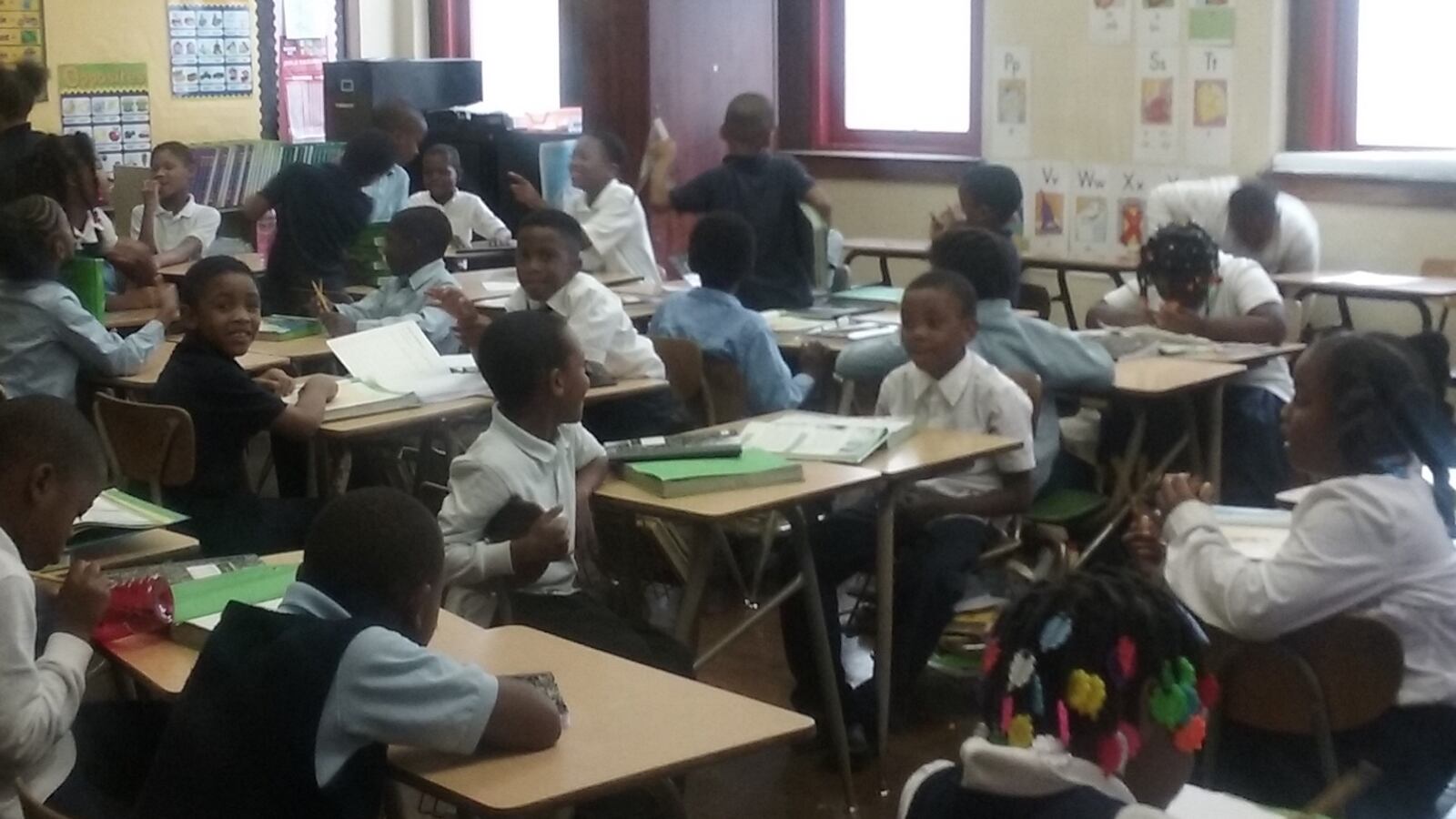After weeks of struggling to hire enough teachers, Detroit’s main school district is now looking for new ways to lure them in.
Superintendent Nikolai Vitti said he’s working with the city teachers union to negotiate incentives that might convince certified teachers to take “hard-to-staff positions.”
The incentives — which would need union approval — would benefit new teachers as well as current ones.
“We know that in order to go deeper with staffing, we’re going to have to offer a set of incentives at particular schools that have been more challenging,” Vitti said.
The details are still being worked out, he said, but the district is focused on attracting special education teachers and those who will teach core subjects like reading, math, science and social studies.
The district has hired about 100 teachers since the first day of school to bring the number of vacancies down to 150, Vitti said.
Over 300 have been hired since July, he said. “We know we can bring them into Detroit. We just obviously need more time to go out and recruit.”
Teachers union leader Ivy Bailey said the district has long offered bonuses to teachers working in critical shortage areas but the new incentive program would be more extensive.
The union is open to the idea, she said. “We’re committed to increasing student achievement and we know that to do that, we’ve got to fill these vacancies with qualified teachers.”
For now, most of the classrooms without certified teachers are being staffed by long-term substitutes, Vitti said.
But there are also classrooms around the city where the shortage has forced teachers to take on 40 or 50 students.
Among schools facing that challenge is the Paul Robeson Malcolm X Academy on the city’s west side. Last year Chalkbeat visited a classroom at the school where 37 first-graders were crammed in together without breaks for music or art or gym.
This year, those first graders are in a second-grade class that has 42 students — and the school still doesn’t have an art teacher.
“It’s just frustrating,” said parent leader Aliya Moore whose daughter Tyliya is in that class.
“I’m constantly hearing that teacher holler,” said Moore who sent Chalkbeat a photo of the crowded classroom. “She’s trying to gain the attention of all those students and instructional time is constantly getting broken up because she has to tell a child to be still, to sit, to ‘put that down.’ She’s an excellent teacher but the load is just too high.”
Vitti said he was aware of that classroom and others like it but said the district is now starting to level classrooms so that schools with too many kids will get more teachers from schools that had lower-than-expected enrollment.
School advocates worry that leveling takes so long that some parents will get impatient and remove their children, ultimately hurting the school when its budget is reduced because of declining enrollment. But in a city where many families spend September figuring out where their children will go to school, the district has typically waited weeks to start moving teachers.
Not every school has the space to create another classroom, Vitti said.
“It’s not as simple as saying they need another teacher,” he said. “Now that we have enrollment settled, we can do the analytics to define the problem and come up with solutions.”
Moore says she believes it’s not likely that another teacher will come to Paul Robeson Malcolm X. She said the school principal told her on Thursday that because the school has an elective class in which kids learn to create African-inspired art and poetry — part of the school’s African-centered curriculum — it technically has enough teachers for its current enrollment.
She fears that elective will be canceled to reduce the size of the second grade but Vitti stressed that the district will not cancel elective classes linked to a school’s mission.
Principal Jeffery Robinson did not immediately respond to a request for comment on the status of that class.
Chrystal Wilson, a district spokeswoman, said the district conducted a preliminary review of staffing levels at the school and found that the “school’s schedule indicates that the principal can address the class size issue by maximizing all certified teachers as other schools have tried to do.”
Once that has been done, she said, the district “will revisit the school’s allocation.”
In addition to considering incentives to hire teachers now, Vitti said he’s also planning for long-term recruitment. He’s having conversations with colleges like Wayne State University about placing more student teachers in Detroit schools this spring in hopes that they’ll come work for the district when they graduate.
“We need to have an active pipeline for teachers,” he said.

